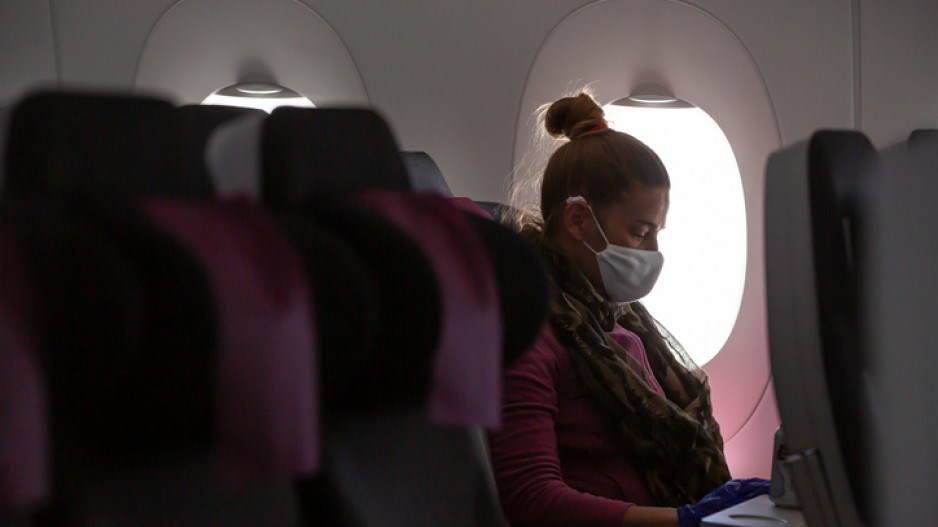B.C.’s hands appear to be tied when it comes to the emerging issue of air travel safety in the face of COVID-19 after premier John Horgan said the province cannot force airlines to change how they conduct business.
Horgan’s comments come a day after B.C. provincial health officer Bonnie Henry said Canadian airlines needed to improve screening for passengers, as well as allowing for more flexible cancellations if a passenger is not feeling well for travel.
The province have identified several flights arriving at Vancouver International Airport last week from Dallas, San Francisco, Kelowna and Montreal that had COVID-19 cases onboard. Horgan noted, however, the province’s reach has limitations despite the government being clear on its position.
“How the airlines configure themselves to do business and to have travellers that are comfortable is pretty much up to them,” Horgan said at his news conference Thursday. “But we want to make sure that they understand these are the health parameters that you should operate under, and Dr. Henry has been clear on that.”
Horgan also noted that – despite the airline industry’s struggles – the sector and its main players need to stay in good financial health in order to facilitate an economic recovery when the pandemic finally subsides in the future.
“When we gather as premiers, we talk about Air Canada and WestJet – two Canadian air companies critical to our economy and critical to keeping B.C. and Canada as an opportunity for international travel when that returns,” he said. “So the success of Air Canada and WestJet is critically important, as well as that of regional carriers here in B.C.”
On Wednesday, Henry was adamant that contact tracing for airline passengers need to be improved, since getting flight manifests for the impacted arrivals have been “challenging,” according to the health officer, in the sense that the data doesn’t help with locating people for follow-up. More than 20 cases of COVID-19 in Canada in the last two weeks have been linked to air travel.
Air Canada and WestJet have also been criticized for ending the practice of blocking out the middle row on planes for passenger flights, which would have improved the ability for people to socially distance if the measure was still in place.
Horgan noted that passengers have to do what they can, regardless of what airlines do.
“What I do know is that we need to make sure that everyone understands if you are needing to go into a plane or on transit, it’s a good idea to wear a mask and be respectful of the people around you in keeping as much distance as possible,” he said.




